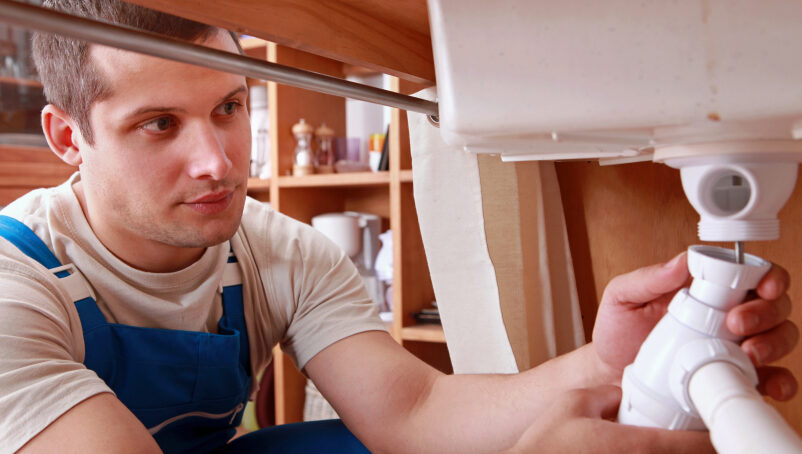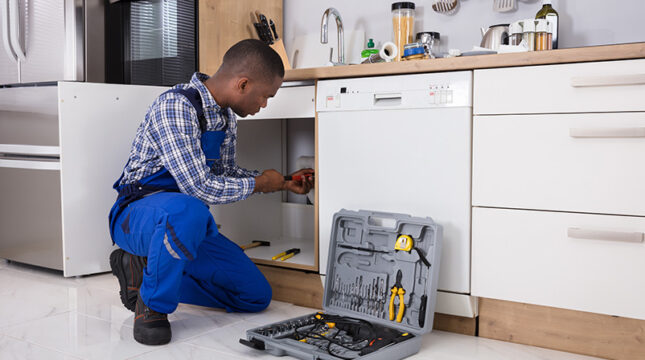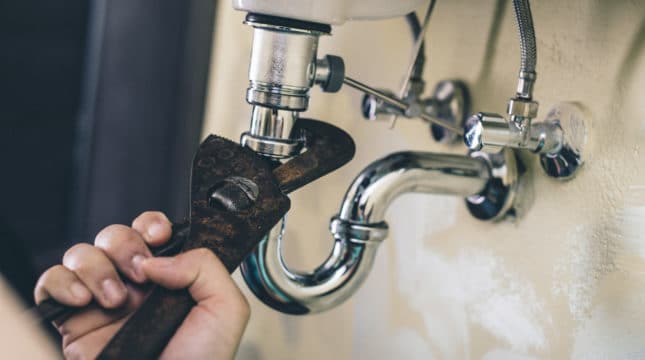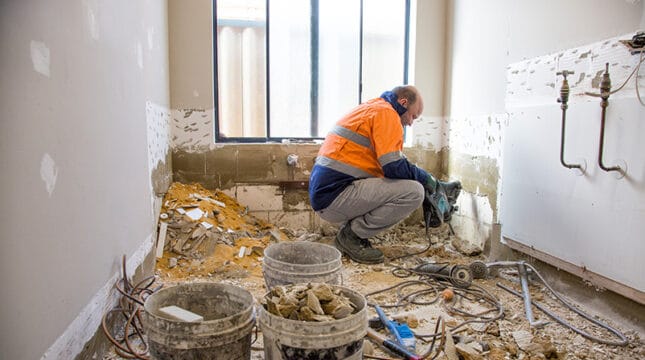Do you need an Idaho plumbing license?
Idaho state law requires you to hold a license for any plumbing work. An Idaho plumbing license proves you know how to install and repair plumbing systems safely, protecting your customers and your business.
The State of Idaho Division of Occupational and Professional Licenses (DOPL) oversees all plumbing licensure. The Idaho Division of Building Safety (DBS) recently merged with the DOPL and closed its state and satellite offices around the state.
As of July 2024, DOPL has transitioned to an online system, replacing the previous paper-based process.
Even if you’re just starting as an apprentice, you must register before working on any plumbing projects.
Insurance requirements for an Idaho plumbers license
Smart Idaho plumbers protect their business with the right plumber insurance coverage. Let’s break down what you need to sleep well at night while running your plumbing business.
Workers’ Compensation insurance
From the moment you hire your first employee, Idaho requires you to get workers’ comp insurance. This coverage helps handle medical bills and lost wages for employees who are hurt on the job.
Learn more about workers’ compensation for contractors.
General Liability insurance
General liability insurance steps in when a pipe bursts and floods the customer’s home or when a client gets injured from tripping over your tools. Because accidents can happen anytime, this coverage helps to keep a simple mistake from draining your bank account. This policy helps cover bodily injuries, property damage and personal and advertising injuries.
Learn more about general liability insurance for contractors.
Commercial property insurance
Got a shop or office? Commercial property insurance helps shield your business space and everything in it — from your inventory of pipes and fixtures to your computers and furniture. This coverage includes damage from fire, wind storms and theft.
Business Owner’s Policy
A business owner’s policy, or BOP insurance, provides broad coverage of general liability and commercial property policies combined in a single, more cost-efficient bundle. That means it can help cover damage that you or your employees may inadvertently cause to another person’s property and help protect your business inventory in the event of a fire or other covered event.
Tools and Equipment insurance
Your tools represent a serious investment. Tools and equipment coverage can help guard your gear from theft, damage or loss, whether at a job site or in your van overnight.
Commercial Auto insurance
Running between job sites means your work truck puts in serious miles. Commercial auto insurance protects your business trips, covering you and your business on the road.
In Idaho, minimum coverage limits include:
- Bodily injury: $25,000 per person and $50,000 per accident
- Property damage: $15,000
Your guide to Idaho plumbing license requirements
Idaho has three plumber levels: apprentices, journeymen, and plumbing contractors. The Board also offers specialty journeymen and specialty contractors for each level that permits a specific scope of work, such as appliance plumbing, water pump and mobile home setup or installer.
You’ll begin as a plumbing apprentice, working under licensed contractors while earning a paycheck. To register, visit the state board’s website. The DOPL provides instructions for creating a profile if you haven’t yet signed into the system.
Pro tip: Keep detailed records of your hours from day one. You’ll need them when applying for your journeyman’s license.
1. Going from apprentice plumber to journeyman
Journeyman is the most common Idaho plumbing license. You have two paths to get there:
- Complete 8,000 hours of work experience (about four years) plus 576 hours of board-approved classroom training program; OR
- Log 16,000 hours of work experience (about eight years)
The first option is faster and gives you both practical skills and technical knowledge, but both can get you to your goal of being a licensed Idaho plumber. Idaho’s approved training and apprenticeship programs run at six colleges across the state:
Each program offers different scheduling options, from traditional daytime classes to evening sessions and online courses. This flexibility means you can choose to keep working while completing your education requirements.
2. Taking the journeyman exam
The licensing process had a key revision in 2024: you must pass your exam before applying for your license.
Idaho’s journeyman plumber exams are scheduled and administered through PSI. It’s easiest to register for the Idaho plumbing exam online using the PSI website, but you can also call PSI at (855) 340-3713 to schedule a time to take the test.
On your testing date, you’ll have four hours to complete the plumbing journeyman exam. Questions are based on the 2017 Idaho State Plumbing Code and the 2015 Uniform Plumbing Code (UPC), and you must have a 75% or better to pass.
After passing the exam, you’ll apply for a journeyman’s license with the state plumbing board and pay the application fee.
3. Advancing to plumbing contractor
Upgrading to a plumbing contractor license from an Idaho journeyman plumber license requires more than plumbing expertise. You must also understand business management and Idaho contractor law.
The exam process is different for plumbing contractors — you’ll first apply to take the Idaho plumbing contractor exam. Then, you’ll schedule the test through the DOPL.
The state board gives you four hours to complete the exam and requires a score of at least 75% to pass.
Note that Idaho law requires all plumbing contractors to carry a $2,000 compliance bond. You must keep this bond active and provide proof each time you renew your contractor’s license.
Digital licensing system
As of 2024, Idaho’s licensing system is digital. Your license will arrive via email one business day after approval. You can save it on any device. If you prefer a physical copy, you can print it at home or through a printing service.
The timeline for getting your plumbing license
The fastest path to becoming a licensed plumber in Idaho takes about four years, assuming you work an average of 40 hours per week and schedule training courses regularly.
After getting the work experience and training you need, the process moves pretty quickly. Scheduling your journeyman exam through PSI is simple, and the online DOPL system makes it easy to submit your application and print your license after getting a passing exam score.
Idaho plumbing license reciprocity
Idaho has reciprocity agreements with Montana, Oregon, and Washington, allowing you to cross the state line and continue your career in Idaho. There’s no need to start from scratch or retake exams. Here’s what you need from each state:
- Montana plumbers must have at least one year of experience.
- Oregon plumbers need six months of active journeyman experience.
- Washington plumbers must be current Washington residents.
License renewal guide for Idaho plumbers
Good news for Idaho plumbers: you don’t have to worry about continuing education requirements that many other states demand. Plus, you can renew your Idaho plumbing license online — just log in using the same username and password you set up when applying for the license, pay the renewal fee, and you’re set.





